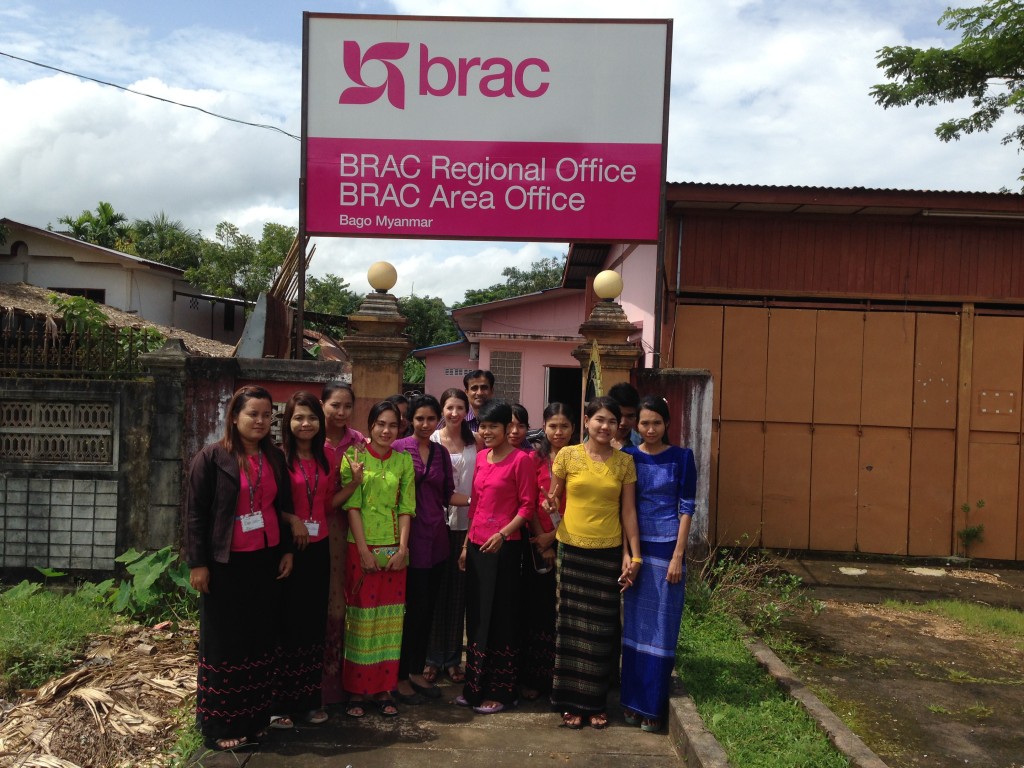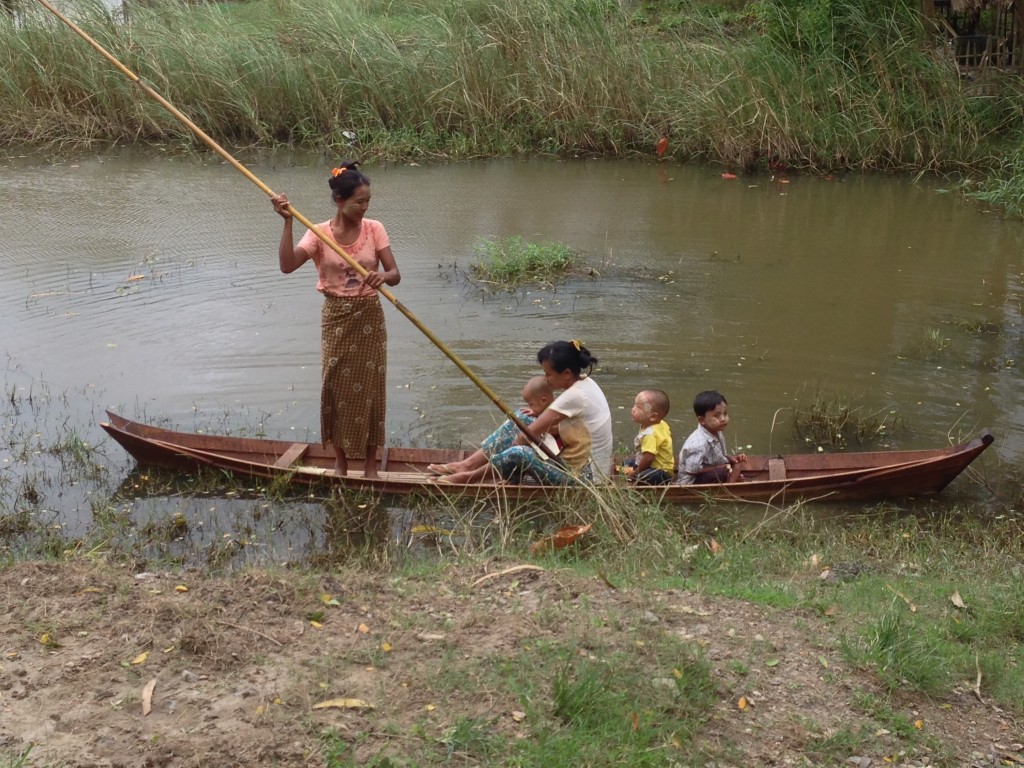
By Samantha Power
I recently spent a week and a half in Myanmar learning about the work of the BRAC team there and the needs of the people they are working for. With national reform underway, foreign investment is pouring into Myanmar, spurring rapid growth. You can feel the energy in the bustling economic capital of Yangon where the job market is booming for young, educated Burmese, offering them opportunities that their parents’ generation only dreamed of. Growth is expected to pick up in the next few years as foreign companies move into what has come to be known as “the last frontier.”

50 miles northeast of Yangon is the ancient capital city of Bago, where BRAC began its first field operations in Myanmar in June. In Bago and the surrounding towns there is little evidence of a growing national economy. The vast majority of female borrowers who I met sell food or other goods in their village or the nearest town. The only large-scale employers in the area are a tobacco factory in Bago and a garment factory in Thanatpin, a nearby town. The women I spoke with were taking out loans of $100-150 USD and making modest investments in the inventory of their businesses.
One thing that was striking about the women in this area was the independence that they displayed and the level of power that they claim to hold at home. When discussing family finances the women were proud to share that they have significant control over how money is spent. They seem comfortable traveling, as well. I met one woman who travels two hours to Yangon to sell her handicrafts to local shops. I believe that Myanmar’s culture is very conducive to BRAC’s programs and will hopefully allow for these women to grow their businesses and move up the income ladder.

There were a handful of women, however, who stood out as being even more capable and confident than the rest. This group included a pottery maker, a snack maker, and a few shop owners. They are real entrepreneurs who, I believe, could benefit from larger loans and targeted advice on how to expand their businesses. These women have instilled confidence in their children, who shared their career aspirations with us: to become teachers and businesswomen.
For the most part, the women in the Village Organizations in the Bago area are sending their children to school. There were a few exceptions where it was not possible to pay school fees for all of the children. The majority of the women, however, complained about the quality of the schooling. Many of them, despite their low incomes, hire outside tutors to teach their kids math and English. This is a good sign, showing the value placed on education in these communities, but shows a need for more robust curriculum in schools.
There is certainly room for BRAC to impact the education sector in Myanmar. I recommend that BRAC prepare a proposal for education assistance to discuss with the new administration after the 2015 election. As BRAC has determined in its other countries of operation, education is a crucial investment for development. With such rapid growth taking place in Myanmar, there is great potential for economic mobility for the young generation if they are able to obtain a decent education. In the meantime, BRAC can impact the education sector in other ways. I recommend opening up small libraries equipped with computers and Internet access at the branch offices.
Health, clean water, and sanitation are also areas where these women could use assistance. The cost and quality of healthcare at the local hospitals was a top complaint, on par with the cost and quality of education. Although clean water and sanitation were not among the chief complaints in focus groups, the women did acknowledge that they could use assistance in this area and it was clear from the lack of toilets and outhouses that this is the case. BRAC’s community health worker program would be a great fit for this region.
Despite the many challenges that the borrowers face, they seemed hopeful, in no small part due to the impact BRAC is having on their lives. I enjoyed asking the women questions about their plans for their businesses and their aspirations for their children’s future. Although most did not have very ambitious plans, they conceded that BRAC had got them thinking. As Esther Duflo and Abhijit Banerjee demonstrate in their book Poor Economics, microcredit is one of “the ways in which we can help the poor think in terms of a future where some of their long-term goals can become attainable. It gives [them] a way to map out their future in a way that was not possible before, and this is the first step towards a better life.”
Samantha Power is a research consultant with BRAC Myanmar.